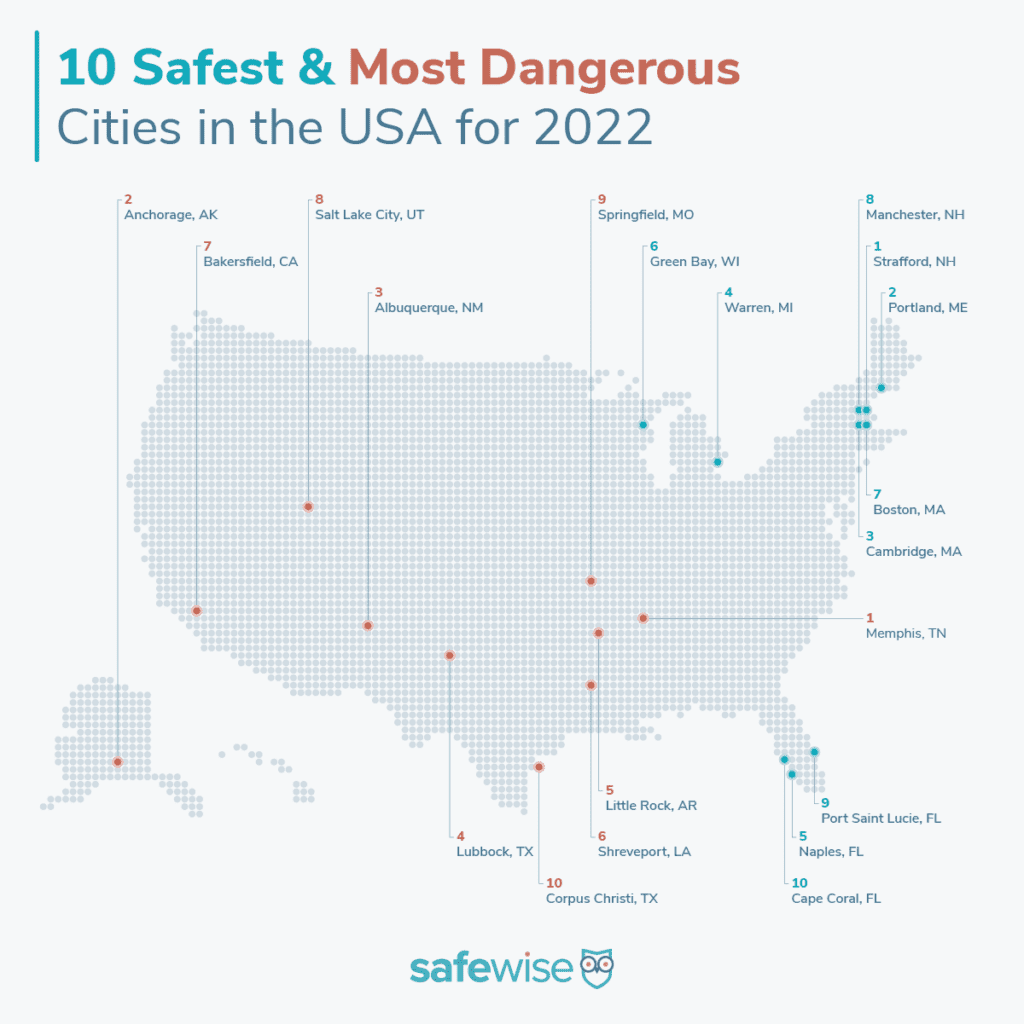Living or traveling in high-crime areas can be dangerous, but there are ways to stay safe. In this article, we discuss ten ways to safeguard yourself while in high-crime areas. These include being aware of your surroundings, avoiding walking alone at night, traveling in groups, keeping valuables out of sight, staying alert while driving, using secure transport, not resisting in robbery, keeping emergency numbers handy, staying informed, and trusting your intuition. By following these steps, you can reduce your risk of becoming a victim of crime and help ensure your safety.
10 Ways to Stay Safe in High-Crime Areas
Living or traveling through high-crime areas can be intimidating and dangerous. However, there are several ways to stay safe and protect yourself from criminal activities.
In this article, we will discuss ten practical steps you can take to safeguard yourself while in high-crime areas.
1. Be Aware of Your Surroundings
One of the fundamental steps to staying safe is to be aware of your surroundings. This means paying attention to your environment, noticing any suspicious behavior or activities, and being on guard for potential threats.
2. Avoid Walking Alone at Night
Walking alone at night can be dangerous, especially in high-crime areas. Try to avoid walking alone after dark, and if it’s impossible to avoid it, walk in well-lit areas, and be extra vigilant. Consider carrying a flashlight or a personal safety alarm.
3. Travel in Groups
Traveling in groups can deter criminals from targeting you. If you must travel, do so in a group, and stick together. Criminals are more likely to choose a victim who is alone than a group of people.
4. Keep Valuables Out of Sight
Carrying valuable items, such as smartphones, jewelry, and cash, can attract unwanted attention from criminals. Keep these items out of sight, and avoid displaying them in public.
5. Stay Alert While Driving
When driving through high-crime areas, keep your car doors locked and your windows up. Avoid stopping at red lights or stop signs if you feel unsafe, and keep a safe distance from other vehicles.
6. Use Secure Transport
When traveling by public transport or taxi, make sure you use reputable companies with a good safety record. Avoid traveling in overcrowded or poorly lit vehicles, and don’t share taxis with strangers.
7. Don’t Resist in Robbery
If you’re robbed, don’t resist. Rather than risking your life or getting hurt, it’s better to cooperate with the criminal’s demands. Stay calm and try to remember any identifying features of the criminal, such as their clothing or appearance.
8. Keep Emergency Numbers Handy
Make sure you have emergency numbers saved on your phone, and if possible, memorized. These numbers should include local police, fire services, and ambulance services.
9. Stay Informed
Stay informed about criminal activity, weather warnings, and traffic disruptions in the area you’re staying or traveling through. This information will help you plan your movements and avoid potentially unsafe situations.
10. Trust Your Intuition
Finally, trust your intuition. If something feels off or suspicious, it probably is. Trust your gut instinct, and avoid situations or people that make you feel uncomfortable.
In conclusion, staying safe in high-crime areas involves being aware of your surroundings, traveling in groups, keeping valuables out of sight, and trusting your instincts. By following these ten practical steps, you can reduce your risk of becoming a victim of crime and help ensure your safety.
